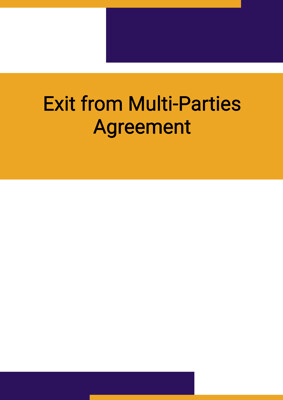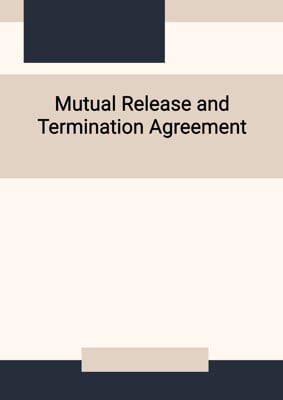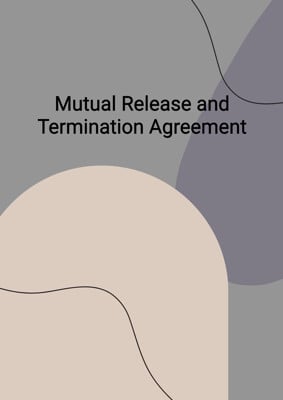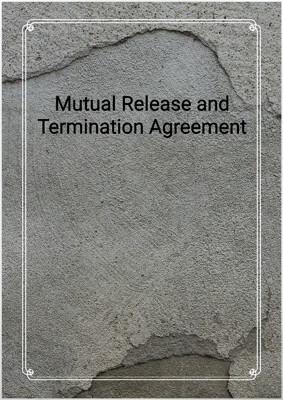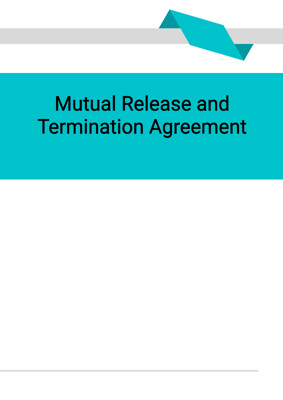
Guarantee and Indemnity
Loan Facilities
A Deed of Guarantee and Indemnity is a legally binding document under which one party agrees to guarantee and indemnify another party under another legal contract, usually a loan agreement. In the deed, the guarantor will agree to unconditionally and irrevocably guarantee and indemnify the Lender from time to time of all obligations, liabilities and undertakings and will waive their right to protest or demand for payment. The guarantee will also be continuing and successive.
How to Tailor the Document for Your Need?
01
Create Document
Fill in the details of the parties. You can click the "Fill with Member’s Information" button to complete it with information saved to your account.
02
Fill Information
Please fill in any additional information by following the step-by-step guide on the left hand side of the preview document and click the "Next" button.
03
Get Document
When you are done, click the "Get Document" button and you can download the document in Word or PDF format.
04
Review Document
Please get all parties to review the document carefully and make any final modifications to ensure that the details are correct before signing the document.
Document Preview
Document Description
The document titled 'Guarantee and Indemnity' is a deed of guarantee and indemnity made by Party 1, referred to as the Guarantor, in favor of Party 2, referred to as the Lender. The document is important as it outlines the Guarantor's agreement to pay any obligations that the Borrowers fail to perform under the loan facilities agreements. The Guarantor's obligations are unconditional and irrevocable, and they guarantee and indemnify the Lender from any sums payable by the Borrowers under the facilities agreements.
The document consists of several sections:
1. Guarantee and Indemnity: This section (1.1) states that the Guarantor will promptly pay any amount and perform any obligation under the facilities agreements if the Borrowers fail to do so. The Guarantor's obligations are not affected by any delay in the Lender's demand. Section 1.2 confirms that the Guarantor guarantees and indemnifies the Lender for all obligations, liabilities, and undertakings of the Borrowers under the facilities agreements. Section 1.3 specifies that the Guarantor must pay the full amount due and payable by the Borrowers upon written demand by the Lender. The guarantee and indemnity are of payment, not collection. The Guarantor waives certain defenses and agrees to indemnify the Lender if any obligation becomes unenforceable, invalid, or illegal. Section 1.5 waives various notices and Section 1.6 establishes that the guarantee and indemnity cover any ultimate balance due under the facilities agreements. Section 1.7 addresses payments without set-off or withholding for taxes, and Section 1.8 confirms the ranking of the guarantee and indemnity among the Guarantor's obligations. Section 1.9 ensures that the Guarantor is not subrogated to any rights against the Borrowers, and Section 1.10 states that the Guarantor's liability continues even if any discharge or arrangement is made.
2. Representation and Warranty: This section (2.1) includes various representations and warranties made by the Guarantor, such as having the power to enter into and perform the deed, the enforceability of the deed, compliance with laws, and absence of litigation or bankruptcy proceedings. Section 2.2 clarifies that the Guarantor's obligations are not affected by certain matters or things, and Section 2.3 prohibits the Guarantor from proving claims or exercising rights against the Borrowers without the Lender's consent.
3. Amendment: This section (3.1) states that the deed may not be amended or modified without the written consent of the Guarantor.
4. Notice: This section (4.1) specifies the requirements for notices or demands on the Guarantor, including the address and facsimile number.
5. Succession: This section (5.1) states that the deed and the guarantee and indemnity are binding upon the Guarantor, its successors, and assigns, and enforceable by the Lender and their successors and assigns. The Guarantor does not have the right to assign its obligations.
6. Jurisdiction: This section (6.1) establishes the jurisdiction for any legal action or proceeding related to the guarantee and indemnity.
7. Severability: This section (7.1) ensures that if any provision of the deed becomes invalid, illegal, or unenforceable, the remaining provisions remain valid and enforceable.
8. No Rights for Third Parties: This section (8.1) clarifies that a person who is not a party to the deed has no right to enforce its terms.
The document concludes with an execution page and a schedule listing the loan facilities agreements.
How to use this document?
To use the 'Guarantee and Indemnity' document effectively, follow these steps:
1. Understand the Importance: Recognize the significance of the document, which outlines the Guarantor's agreement to pay any obligations that the Borrowers fail to perform under the loan facilities agreements.
2. Review the Detailed Description: Familiarize yourself with the detailed description of the document, which provides a comprehensive overview of its contents and sections.
3. Identify Parties: Clearly identify the parties involved in the agreement, including the Guarantor (Party 1) and the Lender (Party 2).
4. Specify Obligations: Clearly specify the obligations of the Guarantor, ensuring they understand their role as the primary obligor and their responsibility to guarantee and indemnify the Lender for any sums payable by the Borrowers under the facilities agreements.
5. Waive Defenses: Ensure the Guarantor understands and agrees to waive certain defenses and indemnify the Lender in case any obligation becomes unenforceable, invalid, or illegal.
6. Establish Payment Terms: Agree on the payment terms, including the full amount due and payable by the Borrowers and the time of payment upon written demand by the Lender.
7. Clarify Ranking and Continuity: Confirm the ranking of the guarantee and indemnity among the Guarantor's obligations and establish that the guarantee and indemnity remain in full force and effect until all the Borrowers' obligations under the facilities agreements are satisfied and paid in full.
8. Comply with Notice Requirements: Adhere to the notice requirements stated in the document, ensuring that all notices or demands are in writing, delivered by hand, registered mail, or facsimile transmission, and addressed to the Guarantor's designated address.
9. Understand Representations and Warranties: Review the representations and warranties made by the Guarantor, ensuring they have the power to enter into and perform the deed and that the deed constitutes their legal, valid, and binding obligations.
10. Seek Legal Advice: If necessary, consult with legal professionals to ensure full compliance with the document and applicable laws.
11. Retain a Copy: Keep a copy of the executed 'Guarantee and Indemnity' document for future reference and record-keeping purposes.
Please note that this guidance provides a general overview and does not constitute legal advice. It is recommended to seek professional legal assistance for specific situations or concerns.
Not the right document?
Don’t worry, we have thousands of documents for you to choose from:
